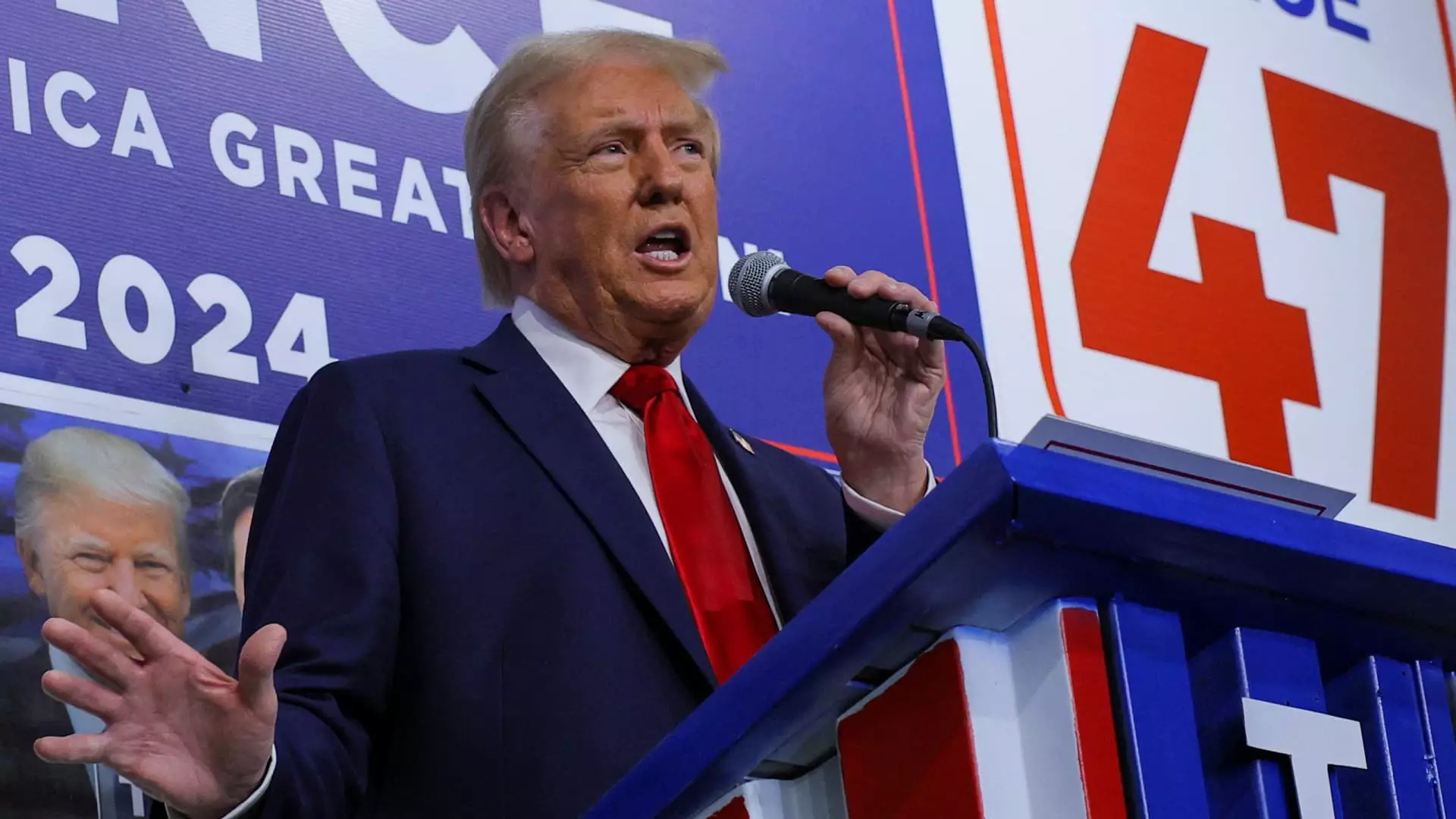In the realm of modern economic policy, few subjects ignite as much controversy as tariffs. A recent poll conducted by NBC News has illuminated the prevailing attitude among voters toward universal tariffs, specifically those proposed by former President Donald Trump. This poll reveals a significant divide in public opinion and raises essential questions about the viability and implications of such economic measures. By analyzing the findings of this survey and the reactions of various political figures, it becomes evident that Trump’s tariff proposal may be more contentious than the former president realizes.
The NBC News poll, encompassing responses from 1,000 registered voters between October 4 and October 8, reflects a clear voter sentiment against universal tariffs. A striking 44% of those surveyed indicated they would be less likely to support a candidate advocating for a broad 20% tariff on imports. In contrast, only 35% expressed increased support for such a proposal, while 19% claimed it would not influence their voting decision. The poll’s margin of error of plus or minus 3.1 percentage points underscores the significance of these sentiments.
This rejection of universal tariffs suggests a broader hesitation among the electorate toward policies perceived to impose higher costs on consumers. As the political landscape evolves, such insights emphasize the need for candidates to align their economic proposals with voter preferences, particularly in a climate where inflation remains a concern for many households.
Trump’s staunch advocacy for universal tariffs is rooted in his belief that imposing significant import taxes will incentivize foreign companies to relocate their manufacturing operations to the United States. In an interview with Bloomberg, he articulated his position that “the higher the tariff, the more likely it is that the company will come into the United States and build a factory.” This approach to tariffs is founded on the assumption that by making imports prohibitively expensive, American industries would be revived, leading to job creation and economic renewal.
While the intent behind this strategy is seemingly noble, it merits scrutiny. Critics argue that imposing extensive tariffs primarily burdens U.S. importers, who are likely to pass these costs onto consumers, resulting in higher prices for everyday goods. With inflation already a pressing issue for many Americans, the prospect of heightened import costs could exacerbate financial strain rather than alleviate it.
Economists have voiced strong objections to Trump’s broad tariff proposals, characterized by their potential to stifle competition and inflate consumer prices. The underlying economic principle posits that while tariffs may shield domestic industries in the short term, they counteract free-market dynamics and could produce adverse effects in the long run. Critics caution that such policies could lead to a reemergence of inflation, undermining the stability the economy has begun to achieve as inflation pressures ease.
Furthermore, dissent within the Republican Party itself highlights a fracture over tariff policies. Figures like Senate Minority Leader Mitch McConnell have openly criticized tariff measures, emphasizing how they can adversely affect American consumers by raising prices. This divergence raises questions about the cohesiveness of the Republican economic platform and whether it can sustain support from its voter base.
As the electoral landscape shifts, Trump’s Democratic opponent, Vice President Kamala Harris, has seized upon the public’s backlash against universal tariffs, branding them a “Trump sales tax.” This political maneuvering underscores the importance of economic messaging in campaigns and its impact on voter mobilization. While the Biden-Harris administration has maintained a tough stance on trade, particularly regarding China, it distinguishes itself by employing a more targeted approach rather than broad tariffs.
Treasury Secretary Janet Yellen reinforced this stance, asserting that the administration’s carefully calibrated tariffs aim to strengthen specific sectors of the American economy. This contrast, while shaped by political motivations, highlights a nuanced discussion about trade policy that may resonate more favorably with voters concerned about inflation and economic stability.
The fallout from the NBC News poll highlights the pressing need for candidates to reevaluate their economic strategies in light of public sentiment. As Trump continues to champion universal tariffs as a cornerstone of his campaign, the increasing unease among voters may compel a reexamination of this approach. The debate surrounding tariffs not only reflects broader economic principles but also underscores the intricate relationship between policy, public opinion, and electoral success in today’s political arena. Without aligning economic policies with the needs and concerns of the electorate, candidates risk alienating their voter base and compromising their political futures.


Leave a Reply